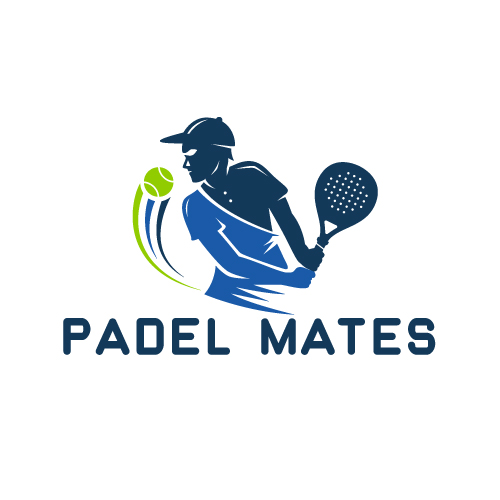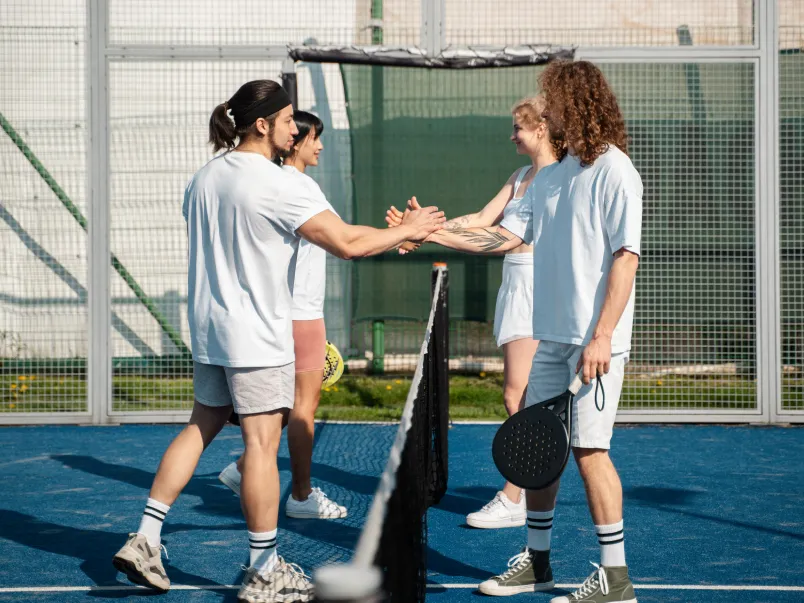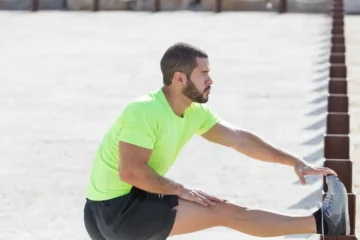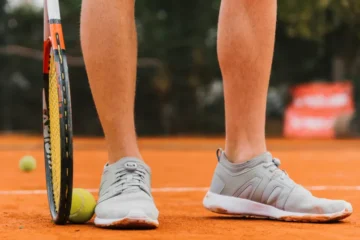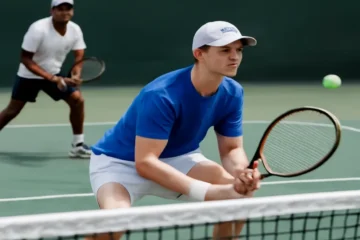Padel is not just a sport – it’s an experience. A sport that thrives on camaraderie, communication, and chemistry. Whether you’re a seasoned player or just starting out, finding the right partner is essential to enhancing your game and making each match memorable. There’s something uniquely magical about a partnership where both players are in sync, anticipating each other’s moves and playing as one cohesive unit. But how do you find this ideal teammate? How do you go from a mismatched partner to a dynamic duo? This article will guide you through the process of finding a compatible padel partner, improving your on-court chemistry, and building a successful and enjoyable team dynamic.
I. Introduction: It’s More Than Just a Game
Imagine the frustration of being paired with someone who seems to be playing an entirely different game than you. The miscommunication, the missed shots, the awkward silences – it’s not fun, right? On the other hand, think about the feeling when your partner reads your mind, covers your back, and knows exactly when to step up or fall back. That’s the magic of a perfectly synchronized padel team. Your success and enjoyment are deeply intertwined with your partner’s style, attitude, and understanding of the game.
In padel, your partner is your “other half on the court.” It’s not just about your individual skills but how you work together to make things click. This article will walk you through the steps to find and nurture a partnership that transforms your padel experience into something far more enjoyable.
II. The Foundation: Know Thyself First
Before you can find the right padel partner, it’s important to understand your own playing style and what you need from a teammate. The key to a successful partnership starts with self-awareness. Here are a few questions to ask yourself:
A. Skill Level: Where Do You Stand?
It’s essential to be honest with yourself about your skill level. Are you a beginner, intermediate, or advanced player? Matching up with someone who shares a similar skill level ensures the game is both challenging and enjoyable. Pairing with a player of a significantly different level can lead to frustration, mismatched expectations, and an uneven experience.
B. Playing Style: What’s Your Approach?
Padel players tend to fall into one of several categories based on their style of play:
- Aggressive Net Player (Smash Artist): You love being at the net, putting pressure on your opponents with smashes and volleys.
- Strategic Defender (The Wall): You’re a patient player, defending and setting up opportunities for your team with consistent shots and a solid defensive game.
- All-Rounder: You can switch between both roles, adjusting your play based on your partner’s strengths.
Knowing your playing style will help you find a partner who complements it – someone who brings balance to your strengths and weaknesses.
C. On-Court Personality: How Do You React Under Pressure?
Are you calm and calculated, always thinking a step ahead? Or are you energetic and motivated, pushing your partner to play harder? Or maybe you’re intensely competitive, always striving for the win? Understanding your on-court personality will help you identify a partner who matches your attitude – someone who shares your level of energy, focus, and competitive spirit.
D. Goals & Motivation: What Drives You?
Are you playing for fun and socializing, using the sport as a way to stay active and meet new people? Or do you have competitive aspirations, dreaming of winning tournaments and improving your ranking? Understanding your goals will help you find a partner with similar motivations – someone who is equally invested in the game, whether it’s for fun or competition.
III. The Blueprint: Qualities of a Great Padel Partner
Now that you have a better idea of your own playing profile, it’s time to consider the qualities of a great padel partner. While technical skills are important, the right partner should also complement your playing style and mentality. Here’s a breakdown of the qualities to look for:
A. Technical Compatibility: A Balanced Game
One of the most important aspects of finding a compatible partner is ensuring that you both have similar skill levels. A player who is too advanced for you may become frustrated by your mistakes, while a partner who is still learning might not keep up with your pace. Ideally, you want someone who can challenge you but also work with you to improve. Look for a partner whose skills match yours to keep the game fun and competitive.
B. Complementary Playing Styles: The Power of Balance
While it’s crucial to match up skill levels, it’s equally important to find someone whose playing style complements yours. For example, an aggressive net player might pair well with a strategic defender. The net player can put pressure on the opponents, while the defender can ensure that every ball that comes back is returned with consistency. Balancing out each other’s strengths and weaknesses helps create a team that’s greater than the sum of its parts.
C. The Right Mental & Attitudinal Fit
Even more than technical ability, the right attitude and mental compatibility are essential to a successful partnership. Here’s what to look for:
- Positive Attitude: A great partner doesn’t get bogged down by mistakes. Instead of blaming, they encourage and uplift.
- Good Communication: Clear communication is key to any partnership. Look for someone who can talk on the court with clarity, whether it’s calling shots or providing constructive feedback.
- Reliability: Reliability is important both on and off the court. Your partner should show up on time and be committed to improving together.
- Team Player Mentality: A good padel partnership is all about cooperation. The best partners understand that “we win and we lose together.” They don’t prioritize their individual performance over the team.
IV. The Hunt: Where to Find Your Padel Partner
Now that you know what you’re looking for in a partner, where do you go to find them? Here are some practical avenues to help you connect with potential teammates:
A. Your Local Padel Club: The #1 Spot
The best place to find your perfect padel partner is at your local padel club. Join social leagues, tournaments, and “mixer” events where players of all levels come together. Being a regular at your club gives you the chance to meet other players, see their skills in action, and form connections.
B. Padel Social Media Groups & Apps
In today’s digital age, social media and sports apps are fantastic tools to connect with padel players. Look for local community groups on Facebook, Instagram, or dedicated padel apps. Many of these platforms allow you to filter potential partners by skill level, location, and availability, making it easier to find someone who matches your preferences.
C. Ask Your Coach
Coaches are often in a unique position to recommend players who are a good fit for you. They know the strengths and weaknesses of many players, and can provide insights into which individuals might be a good match. Don’t be afraid to ask your coach for an introduction.
D. “Try Before You Buy”: Test the Chemistry
Once you’ve identified a potential partner, propose a friendly “test match” to see how well you work together. It’s important to gauge whether you have good on-court chemistry and communicate effectively. Don’t rush into a long-term partnership without making sure you’re a good fit.
V. Building the Partnership: From Good to Great
Finding the right partner is just the beginning. To transform your partnership from good to great, you need to nurture it with effort, communication, and practice. Here’s how:
A. Master On-Court Communication
Effective communication is crucial in padel. Developing clear signals and calls – like “Mine!”, “Yours!”, and “Leave it!” – helps avoid confusion during the match. Additionally, take a moment during changeovers to discuss what’s working and what needs improvement.
B. Define Roles and a Basic Strategy
A successful padel team needs a simple game plan. Discuss who takes the middle ball, who prefers the forehand side, and how you’ll handle serving and returning. A little bit of strategy can go a long way in enhancing your gameplay and reducing confusion.
C. Debrief Post-Match
After each match, have a quick debrief with your partner. Focus on what went well and what you could do differently next time. Be sure to use “we” instead of “you” to keep the conversation positive and team-focused.
D. Practice Together
Dedicate time to practice drills, not just match play. Practicing your serves, volleys, and groundstrokes together helps build muscle memory and understanding. Regular practice also strengthens your on-court chemistry, making your partnership more fluid.
VI. Navigating Challenges: When the Dream Hits a Bump
No partnership is without challenges. Here’s how to navigate common issues that arise during a padel partnership:
A. Handling Mistakes
Remember, mistakes are a part of any sport. It’s important how you respond. Encourage each other after errors, rather than pointing fingers or assigning blame. A positive mindset can turn mistakes into learning opportunities.
B. Differing Competitive Levels
If one partner is more competitive than the other, it’s important to have an open conversation about expectations. Find a balance between having fun and pushing each other to improve.
C. Communication Breakdowns
Sometimes, communication can break down during a match. If this happens, take a moment to reset. Discuss what went wrong and agree on how to fix it before moving forward.
D. Knowing When to Move On
Not every partnership will work, and that’s okay. If you feel that the chemistry isn’t there, it’s important to part ways respectfully. Acknowledge the effort each of you put into the partnership and look for a new opportunity with a different player.
VII. Conclusion: Your Dream Team Awaits
Building the perfect padel team is a journey that starts with self-awareness and extends to finding the right partner with complementary skills, attitudes, and goals. Through effective communication, trust, and mutual effort, you can transform your partnership into something truly special. The perfect padel mate is out there – it’s just a matter of finding them and building a partnership that feels as good as it looks on paper.
Frequently Asked Questions (FAQs) – Finding the Perfect Padel Mate
1. How do I know if my padel partner is compatible with me?
To ensure compatibility, consider factors like skill level, playing style, on-court communication, and attitude. If your partner’s skill level is too high or too low, it can cause frustration. Ideally, find someone whose playing style complements yours, such as pairing an aggressive net player with a strategic baseline player. A positive attitude, clear communication, and mutual respect are also key to a successful partnership.
2. Can I find a padel partner if I’m a beginner?
Absolutely! Many clubs and apps cater specifically to players of all skill levels. Being open about your skill level and intentions (whether you’re playing for fun or competition) helps you find someone who aligns with your goals. Consider joining beginner leagues, mixers, or social events where you can meet like-minded players and improve together.
3. What if my partner and I have different levels of competitiveness?
It’s common for players to have varying levels of competitiveness. The key is communication. If one player is more competitive than the other, discuss expectations early on. Establish whether you’re playing for fun or striving to win tournaments. Adjusting your mindset to focus on team improvement rather than individual success can help maintain a balanced dynamic.
4. How can I find a reliable padel partner?
Reliability is crucial to building a strong team dynamic. To find a reliable partner, look for someone who consistently shows up for games, communicates well, and is committed to improving together. Local clubs, social leagues, and apps can be excellent places to meet players who value punctuality and reliability. Additionally, asking for recommendations from your coach or teammates can also help.
5. What should I do if my padel partner isn’t working out?
If your partnership isn’t clicking, have an honest conversation with your partner. Discuss what isn’t working and whether you both are willing to make changes. If issues persist, it’s okay to part ways and find a better match. Always aim to part on good terms, acknowledging the effort and time spent working together.
6. How important is communication during a match?
Communication is vital to success on the padel court. Establish simple signals like “Mine!” or “Yours!” to avoid confusion about shot selection. Positive communication helps maintain a strong team mentality, especially when things don’t go as planned. Discuss your performance during changeovers and focus on solutions, not problems.
7. Is it necessary to practice with my padel partner outside of matches?
Yes! Regular practice outside of matches can significantly improve your partnership. Focus on drills to strengthen specific areas of your game, such as serves, volleys, and footwork. Practicing together helps develop muscle memory, builds trust, and ensures that you’re on the same page during match play. The more time you spend practicing together, the better your chemistry on the court.
8. Can I find a padel partner online?
Yes, online platforms and social media groups dedicated to padel can be a great resource for finding potential partners. There are also specific padel apps designed to connect players in your area. These apps allow you to filter by skill level, availability, and location, making it easier to find a compatible teammate.
9. How do I know if my playing styles complement each other?
The best way to find out if your playing styles complement each other is through trial and error. Play a friendly match with a potential partner to see how well you work together. Ideally, one player’s strengths should balance out the other’s weaknesses. For example, an aggressive net player might pair well with a solid defender who stays at the back.
10. What are the benefits of having a good padel partnership?
A good partnership brings out the best in both players. When you have great chemistry, you communicate better, play more strategically, and support each other both on and off the court. A strong partnership also increases your enjoyment of the game, fosters a positive atmosphere, and helps you improve more quickly. Ultimately, it makes every match more rewarding and fun.
